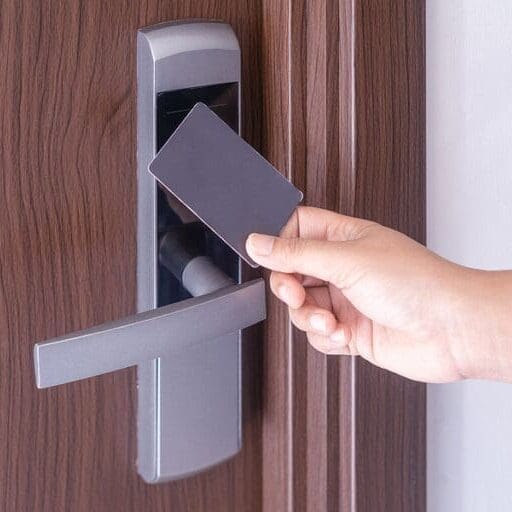The very culture of the so-called hotel experience, complete with the white-glove concierge service, is now no longer the mandatory must-have that it once was. Gone are the days of the indulgent, obsequious proprietor trying to cater to every customer’s whims in an almost suffocating, overly patronizing manner. Today’s demographic has become largely hands-off, and in turn, the demand for a less-than-interactive experience is greater than ever.
Rather than having a shadow eagerly tailing them at all times, constantly confirming that all of their needs are met, hotel guests are now actively seeking out independence during their stays. Because of this, many hotels have had to dramatically change how they approach their guests’ stays, completely overhauling the entire guest experience. Everything from their initial booking, to ordering room service — and even how a guest checks out at the end of their stay — has shifted in response to this new demand.
Customers now not only desire, but have also grown to expect, more autonomy and less ostentatious customer service while staying at a hotel. Because of this, many hotels have struggled to shed these antiquated notions of hospitality in order to meet their guests’ needs. While this change has been somewhat gradual, hotels that wish to meet this emerging trend in order to stay relevant may find themselves struggling with this new normal.
Fortunately, despite these challenges, adapting to these changes isn’t as difficult as it may initially seem. As long as the hotel is alert, receptive, and responsive to these customer expectations, not only can they succeed in executing these changes, but they can also maintain their current customer base while also attracting the next generation of hotel guests. By implementing these four essential contactless considerations, you can help ensure your hotel remains relevant in the coming years.
Introduce a seamless booking process
One thing that has proven to be fairly universal about today’s generation is their staunch refusal to speak on their phones. While this resistance to interact with their peers has almost become a trope at this point, there’s still quite a bit of merit to recognizing their needs. Whether it’s due to their busy lifestyles, a little bit of social anxiety, or even a mix of the two, allowing your guests to book their room and check-in — without needing to speak to a single soul — is essential to them.
Addressing their desire to avoid human interaction clearly demonstrates your commitment to their comfort, therefore ensuring a repeat customer and devout brand loyalty to your hotel. When it comes to choosing a hotel at which they want to stay, universally, most guests will prefer the one that recognizes their desire to minimize human contact. Allowing them to pick out their room and check-in without breaking a sweat is key to ensuring their ongoing happiness with your property.
Provide them with keyless entry
These days, more and more business and leisure travelers are multi-tasking, hardworking, and motivated go-getters. Most likely, they will want to breeze past the lobby check-in, get to their room, and get down to business (or, if they’re on vacation, relaxation and pleasure!). The last thing they want to do is fumble with their keys, not only exposing them to a plethora of nasty germs, but also requiring them to put their luggage down and struggle with the lock.
To help facilitate a less clumsy access to their quarters, providing your guests with keyless entry can prove your hotel to be both modern and accommodating. Not only will this help free up their hands when they’re juggling their luggage, their briefcase, and possibly their young children, but it’ll also demonstrate that you value their safety. No doubt, hygiene standards will remain high in the coming years as learned behaviors during the pandemic continue to shape how we approach cleanliness.
Cater with digital concierge services
For many hotel guests, concierge services aren’t just an indulgent luxury, but also a vital necessity. Whether they require additional towels in their room and don’t want to fuss with calling the lobby, or they’re working through lunch and need a meal brought up to them and don’t want to pause to explain their menu choices to the person on the other end of the line, making this as easy as possible can quickly make you their preferred, go-to hotel of choice.
Even having a friendly bot to answer their questions can help make their stay go smoother, leading to a happier, all-around better stay for them. Indeed, if one thing has been shown in recent years, robots are undoubtedly the future and can even be used to improve the overall guest experience. Automation not only improves efficiency in a wide range of industries, especially the hospitality and service industry, but it also presents a unique touch that sparks both delight and wonder in its novelty.
Settle through contactless checkout
Regardless of the reason for travel, many can agree that the checkout process is one of the more stressful parts of a trip. Between wrangling up their possessions, performing a final sweep of their room to ensure they aren’t forgetting anything, and cramming everything back into their suitcases — all before noon — can be a wholly unpleasant experience for guests. Having to settle their balance at the front desk can only worsen an already anxiety-inducing part of their stay.
However, providing them with a convenient contactless payment system can allow them to settle their balance and be on their merry way. Rather than forcing your guests to haul their belongings down to the lobby and wait patiently while you look up their accounts, they can simply settle any outstanding debts with a push of a button. In doing so, the guests will be able to focus more on how much they enjoyed their stay, rather than how annoyed they were during the tedious checkout.
Embracing contactless service
Whether you’re the manager of a popular chain of hotels, or you’re the sole owner of a private, boutique getaway, it’s absolutely imperative to continuously anticipate your guests’ needs. Knowing what they expect from you during every step of their stay can allow your hotel to remain solvent and relevant. While some guests may still require those personal touches, many others expect autonomy. And by addressing both types their needs, you can help ensure your hotel remains the preferred one for all of your guests.


















